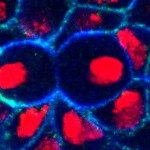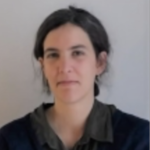Link to Pubmed [PMID] – 35167953
Link to DOI – 10.1016/j.actbio.2022.02.010
Acta Biomater 2022 Apr; 142(): 208-220
In this work, we analyzed the reliability of alginate-gelatin microcapsules as artificial tumor model. These tumor-like scaffolds are characterized by their composition and stiffness (∼25 kPa), and their capability to restrict -but not hinder- cell migration, proliferation and release from confinement. Hydrogel-based microcapsules were initially utilized to detect differences in mechano-sensitivity between MCF7 and MDA-MB-231 breast cancer cells, and the endothelial cell line EA.hy926. Additionally, we used RNA-seq and transcriptomic methods to determine how the culture strategy (i.e. 2D v/s 3D) may pre-set the expression of genes involved in multidrug resistance, being then validated by performing cytotoxicological tests and assays of cell morphology. Our results show that both breast cancer cells can generate elongated multicellular spheroids inside the microcapsules, prior being released (mimicking intravasation stages), a behavior which was not observed in endothelial cells. Further, we demonstrate that cells isolated from 3D scaffolds show resistance to cisplatin, a process which seems to be strongly influenced by mechanical stress, instead of hypoxia. We finally discuss the role played by aneuploidy in malignancy and resistance to anticancer drugs, based on the increased number of polynucleated cells found within these microcapsules. Overall, our outcomes demonstrate that alginate-gelatin microcapsules represent a simple, yet very accurate tumor-like model, enabling us to mimic the most relevant malignant hints described in vivo, suggesting that confinement and mechanical stress need to be considered when studying pathogenicity and drug resistance of cancer cells in vitro. STATEMENT OF SIGNIFICANCE: In this work, we analyzed the reliability of alginate-gelatin microcapsules as an artificial tumor model. These scaffolds are characterized by their composition, elastic properties, and their ability to restrict cell migration, proliferation, and release from confinement. Our results demonstrate four novel outcomes: (i) studying cell migration and proliferation in 3D enabled discrimination between malignant and non-pathogenic cells, (ii) studying the cell morphology of cancer aggregates entrapped in alginate-gelatin microcapsules enabled determination of malignancy degree in vitro, (iii) determination that confinement and mechanical stress, instead of hypoxia, are required to generate clones resistant to anticancer drugs (i.e. cisplatin), and (iv) evidence that resistance to anticancer drugs could be due to the presence of polynucleated cells localized inside polymer-based artificial tumors.

